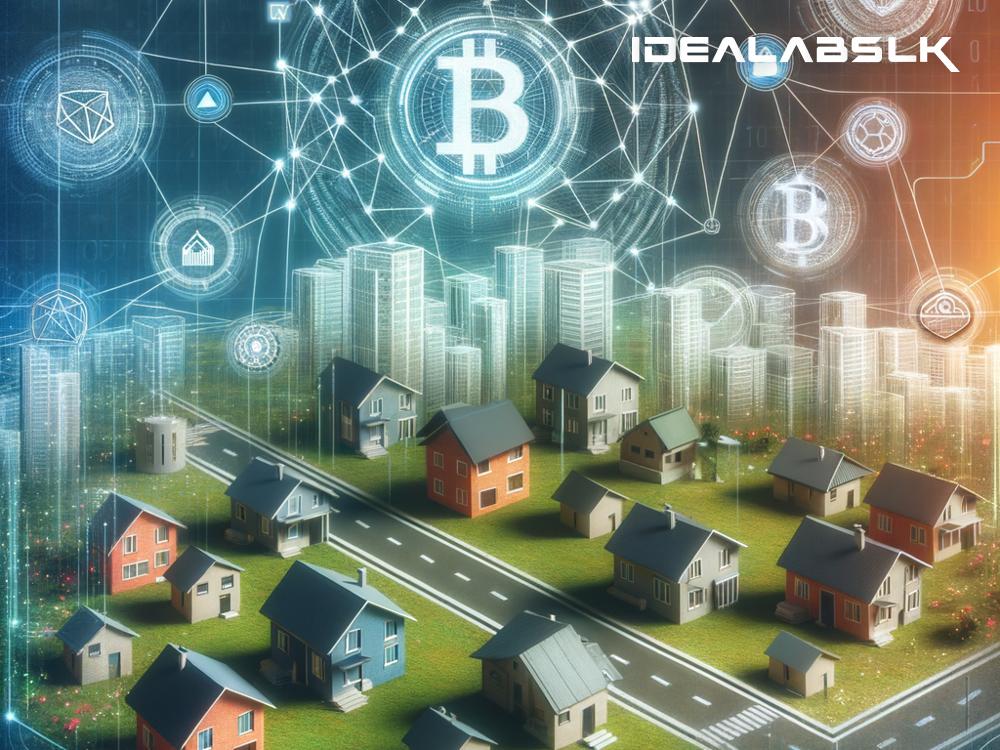Blockchain for Real Estate: Simplifying Property Title Transfers
The world of real estate is complex, filled with numerous steps and paperwork that can be overwhelming for many. From finding the perfect property to finally holding the keys, the journey involves a crucial step known as property title transfer. This process, historically bogged down by administrative red tape and potential fraud, is now on the brink of a significant transformation, all thanks to blockchain technology. But what exactly is blockchain, and how does it play into real estate? Let's dive in, keeping it simple.
Understanding Blockchain in a Nutshell
Imagine a book that everyone can read, but no one can erase or rewrite anything in it. This book keeps growing as new pages (or records) are added, and each page is connected to the previous one in a way that tampering with it is virtually impossible. That's blockchain, a digital ledger that is completely transparent and secure, thanks to its decentralized nature. Originally the backbone of cryptocurrencies like Bitcoin, blockchain's potential stretches far beyond, reaching industries like real estate.
The Traditional Hurdles of Property Title Transfers
To transfer ownership of a property, the current owner’s right to sell and the property’s history are meticulously examined in a process known as title search. This ensures that the property is free from disputes, unpaid taxes, or undisclosed heirs. Traditionally, this involves a lot of paperwork, time, and unfortunately, room for errors or even fraud. Forged documents or falsely claimed ownership can lead to legal headaches and financial losses.
Blockchain: A Game Changer for Real Estate
Blockchain's entry into real estate, particularly in property title transfers, is akin to a breath of fresh air. By digitizing titles and recording them in a blockchain, property records become tamper-proof and transparent. Here’s how blockchain is reshaping this process:
-
Transparency and Accuracy: Every transaction (or title transfer, in this case) recorded on a blockchain is validated by multiple participants, making it nearly impossible to forge. This means anyone can verify the ownership and history of a property transparently and accurately.
-
Speed and Efficiency: Blockchain significantly cuts down the time needed for title searches and paperwork processing. What used to take weeks can now be completed in a matter of days or even hours, making the buying process faster and more efficient.
-
Reduced Costs: By streamlining the title transfer process and eliminating the need for numerous middlemen, blockchain can also reduce the costs associated with property transactions. This includes fees for title searches, legal counsel, and various administrative expenses.
-
Enhanced Security: The decentralized nature of blockchain makes it highly secure against hacking and fraud. Unlike traditional record-keeping, where a single breach can compromise the entire database, blockchain's distributed ledger ensures that the system remains intact even if one part is attacked.
Real-World Applications and Challenges
Several countries and companies are already exploring blockchain for real estate. For instance, Sweden has been testing blockchain for land registry purposes, aiming to simplify property transactions and reduce fraud. However, the shift to blockchain in real estate is not without challenges. Regulatory hurdles, the need for a universal standard, and the daunting task of digitizing existing records are significant barriers.
Moreover, blockchain's novelty means that both professionals in the real estate sector and potential buyers need to educate themselves about this technology, its benefits, and its limitations. There's also the crucial aspect of trust – can we trust this new system enough to handle something as valuable as property?
The Road Ahead
As we navigate these hurdles, the potential benefits of integrating blockchain into real estate, especially in property title transfers, cannot be overstated. A system that's faster, cheaper, more secure, and transparent could revolutionize property transactions, making the dream of owning a property a smoother reality for many.
Imagine a future where buying a home or a piece of land is as simple and straightforward as making an online purchase, with all the complexities handled seamlessly by blockchain. While we're not there yet, the wheels are definitely in motion. With continued innovation and cooperation between technology providers, real estate professionals, and regulators, blockchain could well be the foundation of the next-generation real estate market.
In conclusion, blockchain presents a fascinating opportunity to transform property title transfers, making them more accessible, secure, and efficient. As this technology evolves, it promises to unlock significant value for all stakeholders involved in real estate transactions, potentially heralding a new era for the industry. The journey of integrating blockchain into real estate is just beginning, but its destination looks promisingly bright.

